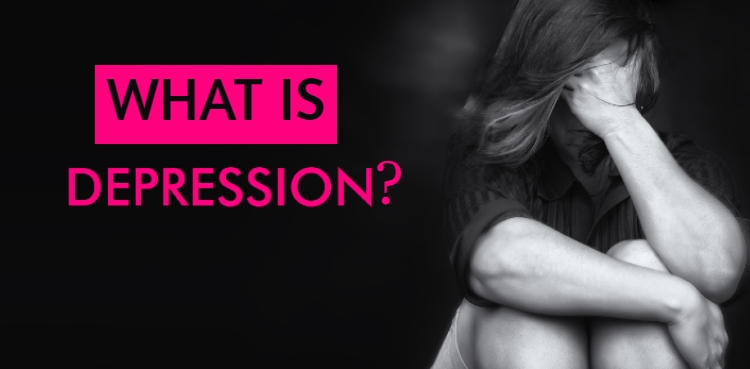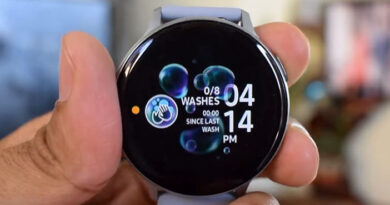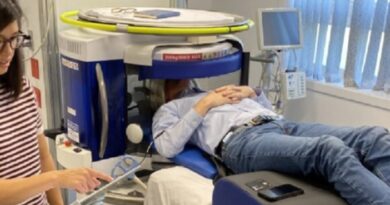What Depression actually is? Know its Types and Ways to Deal it
Most of the people around the world feel sad or depressed at times. It’s normal to feel grief and sorry to lose something or having to struggle in some part of your life. But when this grief, intense sadness that includes feeling hopeless, helpless, and worthless lasts for more than a week and lets you go away from the normal life you were living, then certainly its something way more than sadness. Such a condition is known as clinical depression and there seem to be many types of it.
No no, don’t worry because it’s not only you who’s suffering from it but in fact more than 264 million people around the world are. There are many different types of depression and you may not know but they affect a person in a very serious way. Today, we are going to discuss what is depression, its types, causes, symptoms and treatment. So, hang in there, if you think you or someone around you is suffering from it.
Read: Does Coronavirus have Different Impact on Pregnant Women.?
What is Depression?
According to WHO, Depression is a common mental disorder characterised by persistent sadness, sorrow, grief, and a lack of interest in previously enjoyable activities. It is an illness that disturbs sleep and appetite. Tiredness and weak concentration are very common in it. Depression is a primary cause of disability around the world. Its effect can be long-lasting. It drastically affects a person’s ability to live a normal and rewarding life.
Types of Depression
There are several different types of depression. Below, I have mentioned some of the most common types of them.
Major Depressive Disorder
A major depressive disorder is the most severe type of depression. It is identified by tenacious feelings of tiredness, sadness, hopelessness, and worthlessness. The person suffering from it loses its interest in activities that he/she used to enjoy. It is such a kind of disorder that doesn’t go away on its own. The treatment of this type of depression are medication and psychotherapy.
Persistent Depressive Disorder
Persistent depressive disorder (PDD) also known as Dysthymia is a milder, but chronic form of depression. In order for the diagnosis of the disorder to be made, it at least takes 2 years for the symptoms to persist. PDD is more dangerous as it lasts for a much longer period. It can be treated successfully if and only if you strictly follow your treatment plan.
Bipolar disorder – Types of Depression
Bipolar disorder, previously named as manic depression is a mental health condition. It causes mood swings which include highs (hypomania) and lows (depression). Depression seems to be a common symptom of bipolar disorder. Various research say that people with bipolar disorder show symptoms more than half of the time.
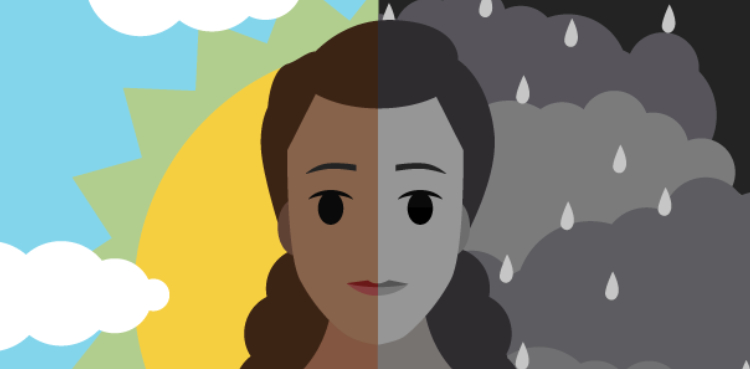
Psychotic depression (Lesser Common Types of Depression)
Psychotic depression is a type of depression that occurs when an extreme depressive sickness includes some form of psychosis. The psychosis could include symptoms like hallucinations or delusions or some other break with reality.
Depression Symptoms
There are many symptoms of depression that people suffering from it may experience. Some affect your mood while others affect your body. Symptoms may be continuous, or they may come and go with time. Symptoms of depression are experienced among men, women and children differently.
Depression Symptoms in Men
The symptoms of men suffering from depression are described below:
- Mood – such as anger, aggressiveness, annoyance, anxiousness
- Cognitive abilities – such as the inability to concentrate, difficulty in completing tasks, delayed responses in conversations
- Physical health – such as pains, fatigue, headache, digestive problems
- Emotional health- such as feeling sad, sorrowful, and hopeless
- Behavior – such as loss of interest, feeling tired easily, thoughts of suicide, using drugs, drinking, no interest in their favorite activities
- Sleep patterns – include insomnia, restless sleep, not sleeping at night, excessive sleeping
- Sexual interest – includes reduced sexual desire, lack of sexual performance
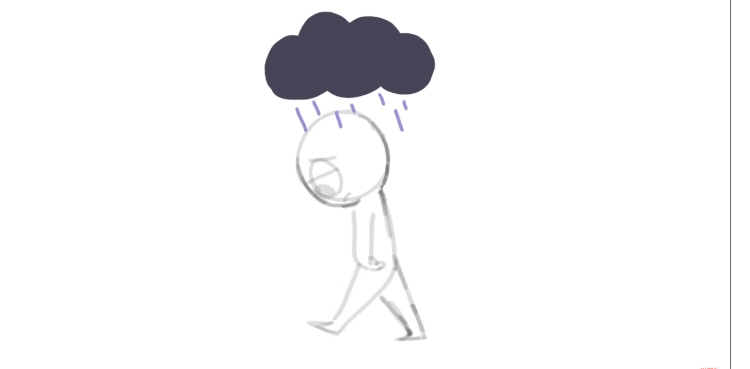
Depression Symptoms in Women
It is nearly double in females than in males according to the CDC. The symptoms of women suffering from depression are described below:
See: Best Sitting Positions for Healthy Back & Spine Posture
- Change in Mood – such as irritability, annoyance, anxiety
- Emotional well-being – such as feeling sad, sorrowful, and hopeless
- Cognitive abilities, such as talking or thinking more slowly
- Behavior – such as loss of interest, thoughts of suicide, no social engagements
- Insomnia, restless sleep, not sleeping at night, excessive sleeping
- Physical well-being, such as lowered energy, greater tiredness, changes in appetite, weight changes, pain, increased cramps, headaches
Symptoms of Depression in Children
Symptoms in children suffering from depression are mentioned below:
- Mood change, such as irritability, anger, crying.
- Emotional well-being that includes feelings of incompetence, weeping, extreme sadness.
- Behaviour, such as getting into trouble at school or refusing to go to school, avoiding friends or siblings, thoughts of death or suicide.
- Similarly, cognitive abilities, such as trouble concentrating, a decline in school performance, changes in grades.
- Sleep patterns, such as difficulty sleeping or sleeping too much.
- Factors of Physical well-being, that include loss of energy, digestive problems, weight loss, or gain.
Causes of Depression
The causes of depression haven’t been completely understood by the medical community as yet. There are many possible causes factors that combine together to trigger symptoms of depression. Major factors that play a role in triggering depression are:
- changes in the brain’s neurotransmitter levels
- psychological and social factors
- genetic features
- drugs use
- medical conditions
- bipolar disorder
- environmental factors
- postpartum depression
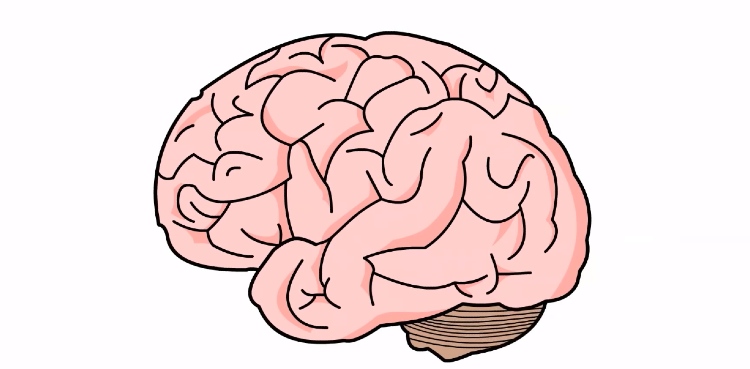
Treatment
Depression is treatable. You can easily get rid of it if you follow any of the following treatments:
- Taking support from your loved ones. It ranges from discussing practical solutions and probable causes to educate family members.
- Psychotherapy, also known as talking therapy can help greatly in fighting depression. Other options include one-to-one counselling and cognitive behavioural therapy (CBT).
- Treating depression with the help of drugs such as antidepressants can help a lot. A doctor may prescribe you medication according to your condition and severity of your depression. In order to completely win against depression, it is obligatory to follow the treatment plan as prescribed by your doctor.
- Natural remedies can also help to treat mild-to-moderate depression.
- A healthy diet can greatly affect your lifestyle and for treating depression, it is necessary for people to eat healthy food such as fruits, vegetables, olive oil, and fish etc.
- Exercises such as aerobic exercise raise endorphin levels and stimulate neurotransmitter norepinephrine.
- Meditation also helps a lot for the treatment of depression.

Also read: Dry Eyes.? Check out the Following Home Remedies
To conclude, depression is a real illness and no one can get away with it. With proper diagnosis and treatment, many people with depression can overcome it. If you are undergoing symptoms of depression, the first step is to see your psychiatrist or doctor. Talk about your matters and demand for a thorough evaluation. This is an initiative for addressing your mental health needs.
Via: Medical News Today, Healthline

